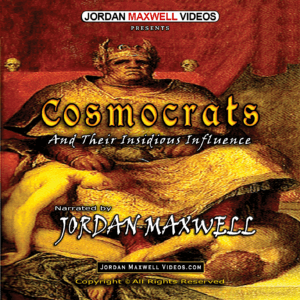What is Man?
What is Man? Understanding the Essence of Humanity
The question “What is man?” has sparked deep reflection among philosophers, theologians, and thinkers for centuries. Today, humanity is often understood through two main lenses: materialism and idealism. While both offer valuable insights, they can oversimplify the complexity of human nature, and in extreme cases, they lead to idolatry.
Materialism: Reducing Humanity to Biology
Materialism views humans as complex biological machines—a collection of atoms, molecules, and neurons. In this view, intellectual, emotional, and spiritual experiences result from physical processes alone.
Implications of Materialism:
- Behavior is shaped by environment: Materialists often argue that external factors, such as upbringing and societal influences, largely determine our actions. This leads to an over-reliance on social programs and government intervention.
- Human dignity is diminished: Reducing people to biological entities strips away their intrinsic worth, making them no different from other natural forces or creatures.
- The individual becomes self-centered: Without connection to a higher power, individuals may place themselves at the center of their existence, approaching idolatry.
Idealism: Humanity as a Spiritual Being
On the other hand, idealism presents humans primarily as spiritual beings, asserting that the true essence of a person lies beyond the physical body. According to this view, the material world serves as a temporary vessel for the soul.
Implications of Idealism:
- Physical well-being is secondary: Since the body is seen as separate from the true self, people often neglect physical health, considering it less important than spiritual growth.
- Physical actions are irrelevant: If the body is merely a shell, actions in the physical world—such as behavior and relationships—become inconsequential to one’s spiritual identity.
- Biological reality is overlooked: Concepts like gender identity are seen as biological accidents, disconnected from any spiritual or divine truth.
The Christian Perspective: A Unified View of Humanity
Both materialism and idealism provide limited views of humanity. However, the Christian perspective offers a more comprehensive understanding, integrating both physical and spiritual aspects of humanity into a unified whole. This view not only acknowledges their distinctiveness but also their interdependence.
According to the Bible, humanity exists in a unique relationship with God, our Creator:
- Created by God: Humans are intentionally designed and sustained by God, which gives us purpose and meaning (Genesis 1:27; Acts 17:25, 28).
- Moral agency: Humans possess the capacity for choice, which comes with personal responsibility.
- Made in God’s image: This foundational concept from Genesis 1:27 provides the bedrock for human identity and purpose.
Key Aspects of Humanity’s Divine Image:
- Representatives of God: As the image of God, humans reflect His authority and stewardship on Earth (Genesis 9:6).
- Reflecting God’s character: We are meant to mirror God’s attributes, such as creativity, love, justice, and mercy (Genesis 1:26-31).
- Christ as the perfect image: Jesus Christ embodies the ideal human, showing us how to live fully in the image of God (2 Corinthians 4:3-4; Colossians 1:15).
Cosmocrats | Jordan Maxwell DVD
The Fall: Corruption Yet Reflection of God’s Image
Though humanity’s image of God was distorted by sin, it was not entirely lost. The fall of man—when sin entered the world—affected our ability to perfectly reflect God’s image. Still, traces of that divine nature remain within us.
How Sin Affects Human Nature:
- Corrupted yet intact: While human nature is marred by sin, the image of God continues to linger within us (Psalm 58:3; Romans 5:12).
- Spiritual death: Without God’s intervention, humanity remains spiritually dead, separated from divine life (Romans 8:7-8; 1 Corinthians 2:14).
What is Man? The Christian Answer
The Christian view offers a comprehensive answer to the question of humanity’s essence. It recognizes that humans are both corrupted by sin and yet bear the divine image, with profound moral and practical implications:
Implications of the Christian View of Humanity:
- Moral Responsibility: Humans are called to treat others with dignity and care, especially the vulnerable, because they reflect God’s image.
- Intrinsic worth: True self-esteem stems from recognizing one’s value as a creation of God, not from external accomplishments or material success.
- Ethical living: Human behavior is subject to moral critique, grounded in biblical teachings that guide us toward righteous living.
- Holistic Education: Educational systems should acknowledge that humans are both physical and spiritual beings, fostering growth in both aspects.
Conclusion: Embracing the Fullness of Humanity
The Christian understanding of humanity provides a balanced perspective that avoids the extremes of materialism and idealism. It recognizes that humans are both physical and spiritual creatures, each with intrinsic value and moral responsibility. By embracing this view, we can:
- Treat others with respect and dignity, recognizing their inherent worth as reflections of God’s image.
- Cultivate self-worth rooted in a relationship with our Creator, rather than in fleeting or material pursuits.
- Live ethically, guided by biblical principles, and build communities that value both the physical and spiritual aspects of life.
By adopting this holistic view, we can navigate the complexities of human existence more effectively, finding purpose and meaning that go beyond mere biology or spiritual abstraction.




 Jordan Maxwell Videos
Jordan Maxwell Videos